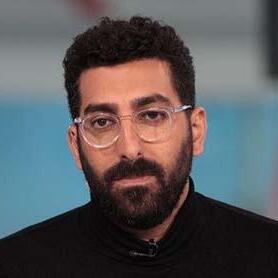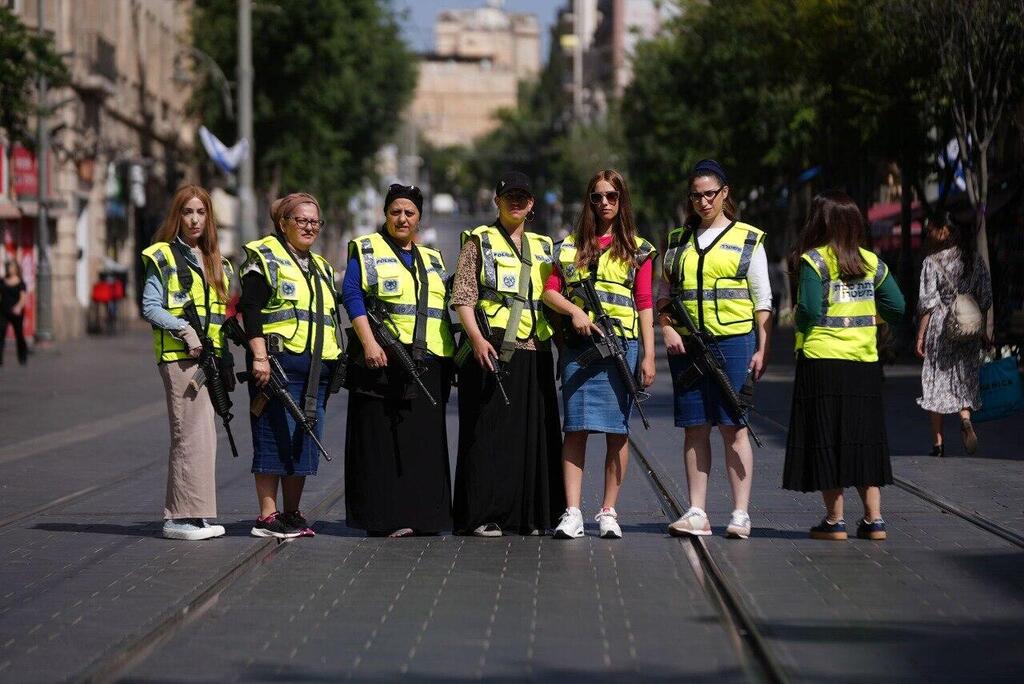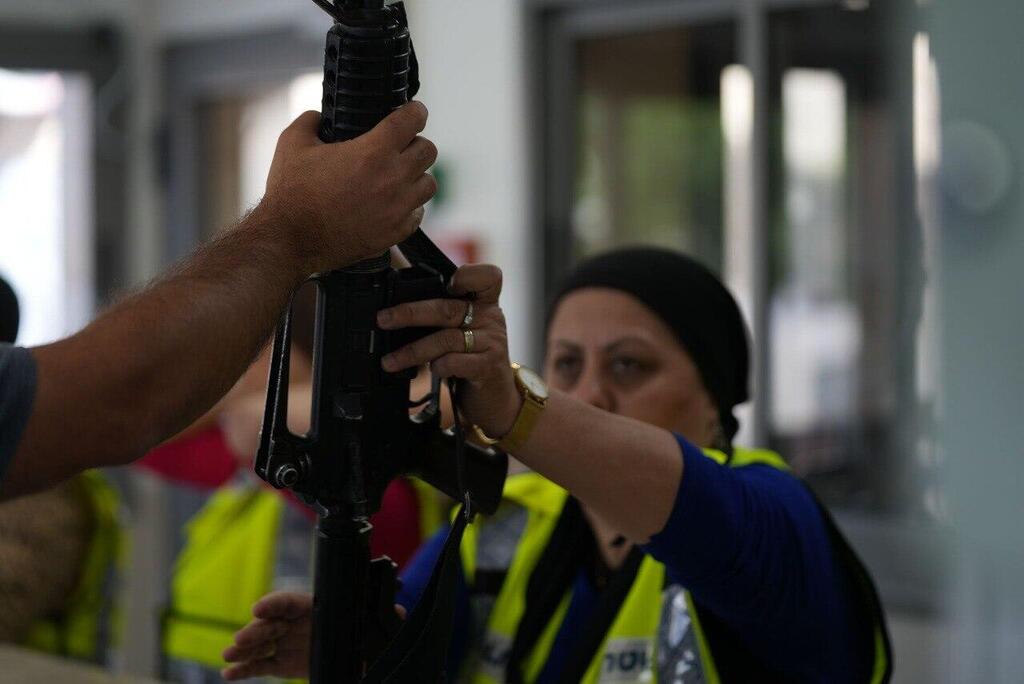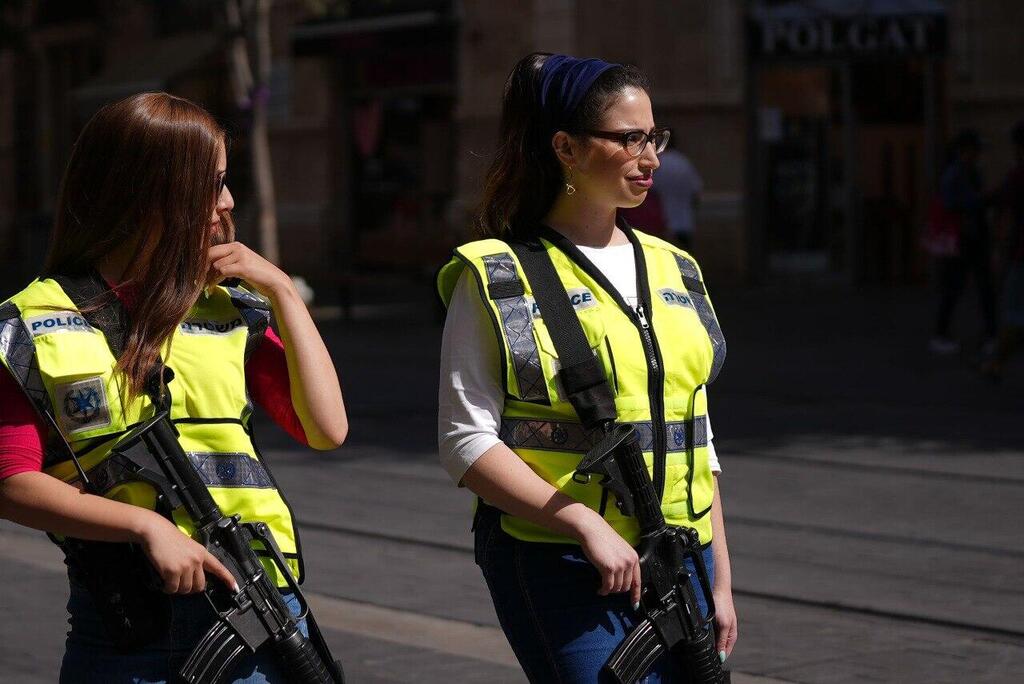Getting your Trinity Audio player ready...
The Hamas massacre on Simchat Torah, October 7, ignited a strong desire in Leah Paris-Weiss from Modi'in Illit, an ultra-Orthodox town not far from Jerusalem, to help the all people of Israel in any way possible. It started with assisting evacuees from the south in finding temporary housing and meeting their needs, and continued with supporting and organizing events for reservist women and the children of reservists from the Haredi and religious communities.
But this was not enough for Paris-Weiss, and she decided she wanted to volunteer for the Civil Guard and inspire other Haredi women to join her.
When she approached the Shomrim organization in Modi'in Illit, which is affiliated with the Civil Guard, with a request to join, Paris-Weiss was met with various evasions. She reached out to the local police in the city, who were willing to assist, but when the rabbis found out they canceled the planned training in the city. Paris-Weiss did not give up and, along with a friend, worked to ensure the initiative was established in Jerusalem. "If I had the opportunity, I would enlist in the army's second phase," she said, which allows those with a low profile or an exemption to volunteer for the IDF in other ways.
"I am proud that the Israel Police gave us the opportunity to come and volunteer and welcomed us with open arms," she says in a special interview with Ynet, alongside K., who co-initiated the project and preferred to remain anonymous. They volunteer at a station in the Jerusalem District. "There was the usual bureaucracy, what everyone goes through, but they accepted us with open arms. Most of the reactions, honestly, are 'well done,' 'you are sanctifying God's name,' 'may God protect you.'"
Even from the ultra-Orthodox?
"Even from them. There was also a less pleasant reaction that I don't even remember what was said because I tend to stay calm as befits the role and not stoop to their level, so to speak."
Within the Haredi community, how does this fit in?
"Honestly, for some people, I believe it doesn't fit in, but I am truly doing my mission, what I feel needs to be done since October 7. The police really need volunteers and, for me, I feel great pride, and I see it as a mission. I believe that in everything, there are people who will connect less. From those close to me, I have only received positive reactions."
In case, God forbid, you need to use a weapon, will you hesitate?
"No, absolutely not."
K., one of the initiators of the project to integrate Haredi women into the Civil Guard, why are you being interviewed with your back turned and voice distorted, and not with your face showing?
K.: "This is something less accepted in the Haredi community, and it's a breakthrough for very brave women who decided to be pioneers and volunteer for the Civil Guard. Since I am part of a community, I prefer not to expose myself because it is less accepted."
K. explains that "as Haredi women with a military exemption, we are not part of the security system, and we felt a great need to contribute to security and the citizens. That's where the idea was born, and I took it a step further. I contacted the police, and we formed a group of 20 women who successfully completed the training and became part of this volunteer system."
We see truly amazing pictures of Haredi women carrying weapons on the streets of the cities. Do you think this project could be a kind of gateway for Haredi women to integrate and become a sort of security force in some platform?
"Yes, I think it's definitely a breakthrough. I want to emphasize something important: all the training we went through was in a very conservative framework. Our group consisted only of Haredi women, and they really respected our way of life. The police fully committed to this and adapted themselves, which is also significant news. Currently, there's more talk about enlisting yeshiva students, and women are less in the forefront, but this is a message that Haredi women can also be part of it. In many things, Haredi women are the first to break through and the first to integrate into Israeli society, and it's happening here too."
First published: 17:01, 05.29.24





